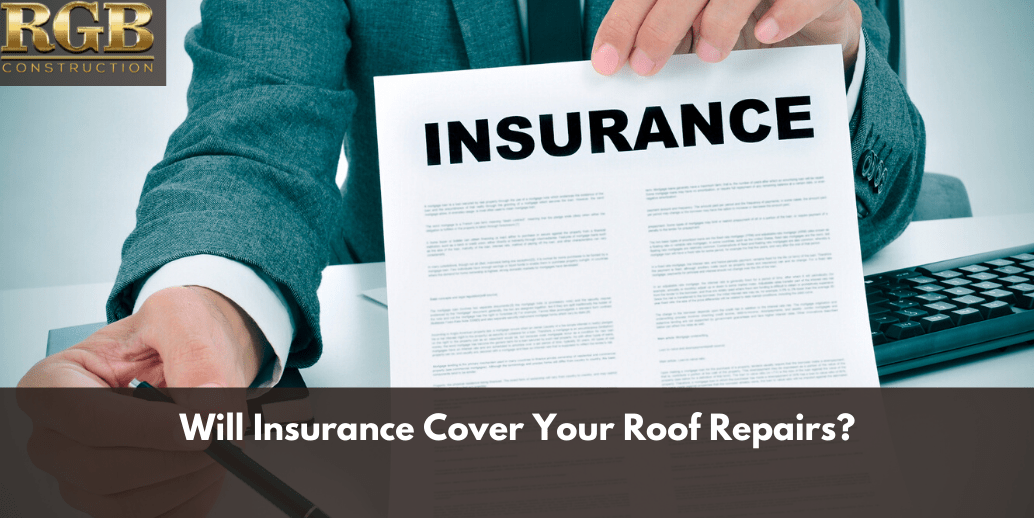If your roof has been damaged recently, you have probably been asking yourself: Will my insurance company pay for the repairs that I need? Unfortunately, there isn’t a quick and easy answer to your question. While your insurance company might indeed pay for your roof repairs, they might also deny your claim.
At times, these denials can be based on the flimsiest of reasons, and it usually isn’t personal. Insurance companies have rules to follow like everyone else, and you might be denied if you don’t know how to work within those rules. Such will be the topic of today’s article. We will examine the arguments that might be used to deny your claim and the arguments that you can use in response.
Top Four Causes Of Insurance Claim Denial
First, let’s look at the top four reasons for which an insurance company could deny your claim:
1. The Roof Is Too Old
All roofing systems, no matter how well installed, will eventually break down. Because of this, insurance companies typically refuse to cover roofs that are more than 20 years old. They do make certain exceptions to the rule, of course. Otherwise, many older homes would be uninsurable.
Here’s the catch: A roof that is older than 20 years can only be insured if it has recently passed a home inspection. So, unless you happen to have had your roof inspected lately, your older roof is probably not going to be covered. To be honest, you should replace a roof of that age anyway.
2. Homeowner At Fault
Most insurance policies will refuse to cover roof damages if their inspectors believe that the homeowner was at fault. Bear in mind that these people have a financial motivation to deny your claim, so they might take any excuse to blame you for the damage. For instance, let’s say a tree branch falls on your roof. They might determine that the accident was your fault because you failed to keep those branches trimmed.
You might also be found to be at fault if the damage was caused by an earlier problem. The insurance company will say that you failed to repair the issue and are, therefore, at fault. For instance, if you had a small, pre-existing roof leak that turned into a larger leak, they would argue that you failed to address the root problem and are therefore at fault.
3. Your Roofing Material Isn’t Covered
In some cases, insurance companies will refuse to cover certain roofing materials. For instance, wooden shingle roofs are often considered to be high-risk. They are susceptible to both fire and water damage and are not particularly cheap to replace. Even if an insurance company does cover these things, they will probably charge a lot more money in premiums.
4. The Damage Type Isn’t Covered
Insurance policies are only meant to cover certain types of damage. Depending on the findings of their investigator, the insurance company might deny your claim based on the kind of damage not being covered by your policy. Here are the things you should look for in a good homeowner’s insurance policy:
- Fire and smoke
- Lightning damage
- Natural disasters
- Damage from a vehicle or aircraft
- Vandalism and other deliberate destruction
- Falling branches
- Snow and ice buildup
- Water damage
- Wind damage
- Hail damage
Here is the thing: All of these things might be covered, but the policy might have certain exceptions that disqualify coverage under certain circumstances. For this reason, you need to read such a policy carefully before you sign it.
Good Arguments To Give Your Insurance Company
We don’t want to give you the wrong idea; Insurance companies will often cover roofing repairs, but you need to know how things work. You don’t just call them up and file a claim as you normally would. You need to file an emergency claim so that they will bump your case to the top of the priority list.
Insurance companies know that an open roof will result in more damage, and they might have to pay for that damage. The longer that roof remains open, the worse the damage will become. Even though this fact seems obvious, make sure that you mention it when talking to your insurance company’s representatives. Don’t be rude or nasty, just let them know that you are in a bad situation and that you need immediate help.
If they really won’t budge, call a different insurance company and see what they say about the matter. If they say that they are willing to cover your roof, call your old insurance company and let them know the situation. Tell them that you have another company that is willing to pay for your emergency roof repairs. Let them know that you would like to continue doing business with them, but that you need your roof repaired immediately to prevent further damage to your home. Chances are, they will either see things your way or drop you, at which point you can find some better coverage.
Conclusion: Two Points To Remember
There are a few things you can learn here. For one thing, make sure that your roof is always well-maintained, and make sure to do an inspection once every year or two. It might seem excessive, but this will ensure that your roof is covered in the event of an emergency. Even if the roof is older than 20 years, the company can’t reasonably deny you if they certified that roof within the last year.
Another thing to remember is the urgency of the situation. When your home is open to the outside world, that is a situation that requires immediate attention. If your insurance company doesn’t see it that way, then they are not worth your business. If you have found this article to be worth your time, please fill out the contact form below.







